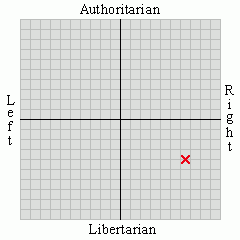A bit of an odd monologue today, but it has a point.
I heard some time ago of the Khan Academy, a great resource for autodidacts. At the time the only history available there was the French Revolution and Napoleonic Wars, so I watched the whole lot; what a horrifying series that was. What a barbaric forerunner of the 20th-century communist revolutions, what terrible conflicts for the grandiose ambitions of one man.
What is more worrying, and certainly more current, is the French attitude to both the Revolution and Napoleon Bonaparte. They are both openly revered. The French motto is the motto of the Revolution; the French National Anthem is the Anthem of the Revolution, schools are named after its violent leaders (I went on exchange to École Robbespierre). Although the French are a little more ambivalent towards him, Napoleon Bonaparte is still widely considered a French hero, or else considered to have helped France or Europe in some ways; Metro stops are still named for his generals. The pupil I exchanged with at École Robbespierre was utterly adamant that Napoleon had ended his wars victorious; he would not believe otherwise.
Violence of the French Revolution: this time, ironically, the execution of Robbespierre
Why do I consider these things today, and why are they important?
Here I have a confession: I was reading the Daily Mail. I usually refuse, for personal reasons, but I was in a coffee shop awaiting my wife, and that was all that was available. In it A.N. Wilson has an article on the bicentenary of the battle of Waterloo (for those educated in Britain, that will be in 2015) and the lack of official plans for celebrations.
Yet this was a victory every bit as important for modern Europe as the victory over Nazism and Fascism and the victory over Communism. We celebrate these victories in some official way. We honour the great figures in these victories, with a statue to Ronald Reagan having been unveiled today, Independence Day.
The Communist Parties and Nazi Parties are widely reviled today, most importantly in their own countries (with the possible exception of Russia). People recognise that these were evil regimes. People would not wish to be associated with the political ideals of these regimes (even when their views happen to coincide).
Yet in France it is not so, and it is just accepted that victory over Napoleon and post-Revolutionary France are something to keep quiet about, not to be triumphalist, as if the violent, repressive, French dominance of Europe was something that could have been allowed to remain, the victory in these terrible wars something to be ashamed of as we are now allied to France.
Napoleon Bonaparte was an egotistical bastard. He set a continent ablaze, killed on a scale never seen before, not to be seen again for a century. He did so for his own personal satisfaction.
A.N. Wilson puts it well, in comparing the two opposing commanders that day.
When told he risked his life by riding to and fro on his horse, [Wellington]replied: 'The battle's won. My life's of no consequence now.'
Napoleon would never have said that. To such a megalomaniac, his own life was all-important; those of the people he killed and enslaved were of no consequence whatever.
It is about time France recognised the horrors of the Revolution and the subsequent wars, as the Germans did with the Nazi regime, and that French honour for the Revolution and Bonaparte is challenged. This attitude is at the core of an unhealthy French nationalism, that leads directly to some of the most damaging aspects of the EU and of French dealings with the world.
On a final note – what do the three evil regimes compared here have in common? The French Revolutionaries, the Communists and the Nazis all started out as socialists.
Edit: just to add a comment to any that seriously doubt that the French revere the monstrous post-revolutionary regime. 25 years ago I was on a school exchange in southern France, to a modern secondary school. It's name? Ecole Robespierre.. Named after Maximilien Robbespierre. I doubt the name has been changed.





2 comments:
I'm in almost complete disagreement. France gained a lot of insight from what transpired after the revolt of 1789 and I believe as Mr. Jefferson put it, when a government fails to serve it should be abolished. We have a government today which will grow in many ways by revolt. As it stands the citizens cannot hope for better, only by taking to the streets and darkening the night can we hope to usher in the dawn.
I am not saying that the royalist government should not have been overthrown, or was in any way just. My point is that the French frequently fail to condemn the violence of the revolution, and the war that spread across the globe - the first World War really - when considering that overthrow.
What do you think the French learnt?
I am not in disagreement that many western countries have deep flaws that democracy is not addressing. I certainly would not condemn anyone advocating some form of revolution.
Thanks for the input.
Post a Comment